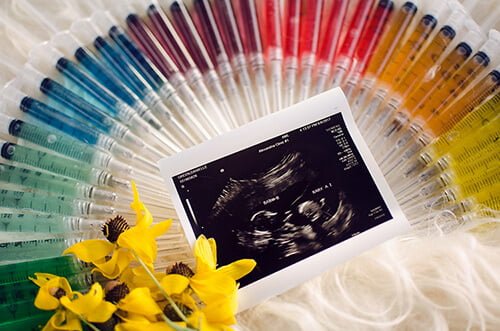The first step in IVF involves injecting hormones so you produce multiple eggs each month instead of only one. You will then be tested to determine whether you're ready for egg retrieval.

Prior to the retrieval procedure, you will be given injections of a medication that ripens the developing eggs and starts the process of ovulation. Timing is important; the eggs must be retrieved just before they emerge from the follicles in the ovaries. If the eggs are taken out too early or too late, they won't develop normally. Your doctor may do blood tests or an ultrasound to be sure the eggs are at the right stage of development before retrieving them. The IVF facility will provide you with special instructions to follow the night before and the day of the procedure. Most women are given pain medication and the choice of being mildly sedated or going under full anesthesia.
During the procedure, your doctor will locate follicles in the ovary with ultrasound and remove the eggs with a hollow needle. The procedure usually takes less than 30 minutes, but may take up to an hour.
Immediately following the retrieval, your eggs will be mixed in the laboratory with your partner's sperm, which he will have donated on the same day.
While you and your partner go home, the fertilized eggs are kept in the clinic under observation to ensure optimal growth. Depending on the clinic, you may even wait up to five days until the embryo reaches a more advanced blastocyst stage.
Once the embryos are ready, you will return to the IVF facility so doctors can transfer one or more into your uterus. This procedure is quicker and easier than the retrieval of the egg. The doctor will insert a flexible tube called a catheter through your vagina and cervix and into your uterus, where the embryos will be deposited. To increase the chances of pregnancy, most IVF experts recommend transferring up to three embryos at a time. However, this means you could have multiple pregnancies, which can increase health. risks for both you and the babies
Following the procedure, you would typically stay in bed for several hours and be discharged four to six hours later. Your doctor will probably perform a pregnancy test on you about two weeks after the embryo transfer.
In cases where the man's sperm count is extremely low or there is poor motility (movement of the sperm), doctors may combine IVF with a procedure called intracytoplasmic sperm injection. In this procedure, sperm is taken from semen -- or in some cases right from the testicles -- and inserted directly into the egg. Once a viable embryo is produced, it is transferred to the uterus using the usual IVF procedure.
No comments:
Post a Comment